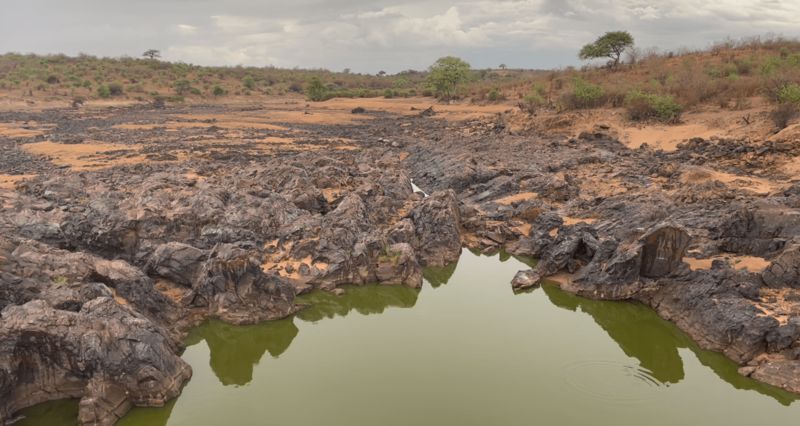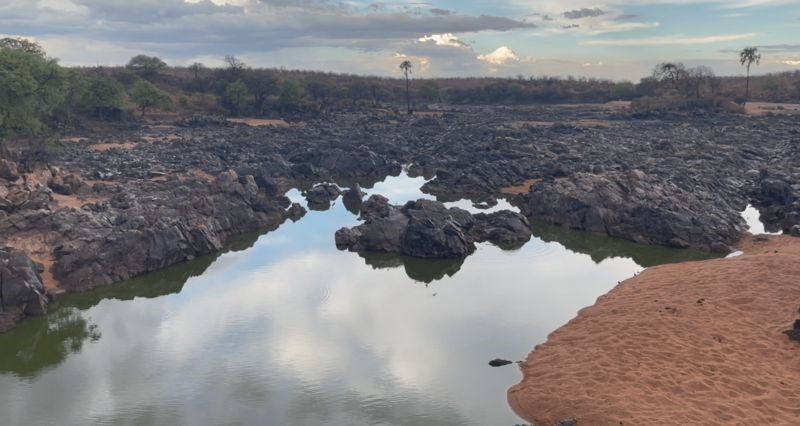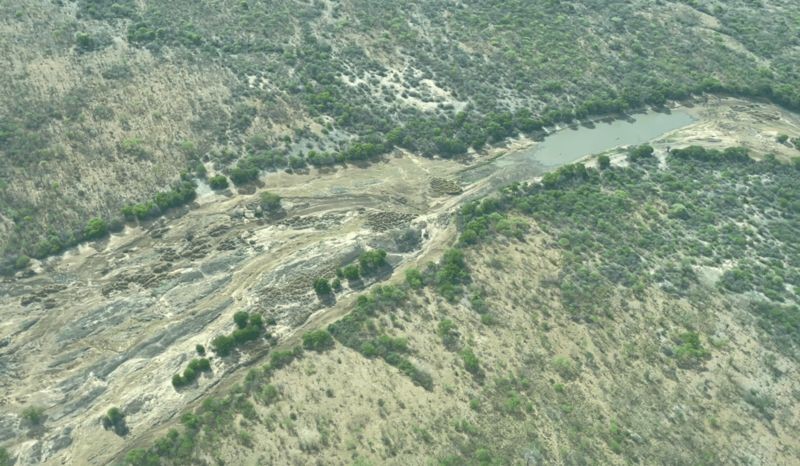Alfred Lasteck, BBC News
The Tanzanian government has said that there are some leaders in the country for their personal interests who are contributing to the destruction of the environment including water sources and causing rivers to dry up.
In addition, it has been stated that 12 families of leaders including ministers, politicians and judges are accused of being involved in the destruction of the water sources of the Ruaha Mkumu River located in the highlands of southern Tanzania.
The government’s statement was made yesterday in Iringa region by the Vice President of Tanzania, Dr. Philip Mpango when he attended the Conference of Editors and Stakeholders of Conservation, Environment and Water Resources Management.
Dr Mpango said, “There are some leaders for personal interests, they contribute a lot to the destruction of the environment. I don’t believe our poor farmers, breeders are the ones who are destroying the environment. We must save all our rivers, especially strategic rivers like Ruaha, leaders like this are not good for us.”
He added, “I am wondering in the reserve, do the more than 3,000 cows belong to the poor breeder or do the large ‘combine harvest’ belong to the farmers I know?” He said and added that due to the damage, “the environment is now taking revenge and we have pay for our violence.”
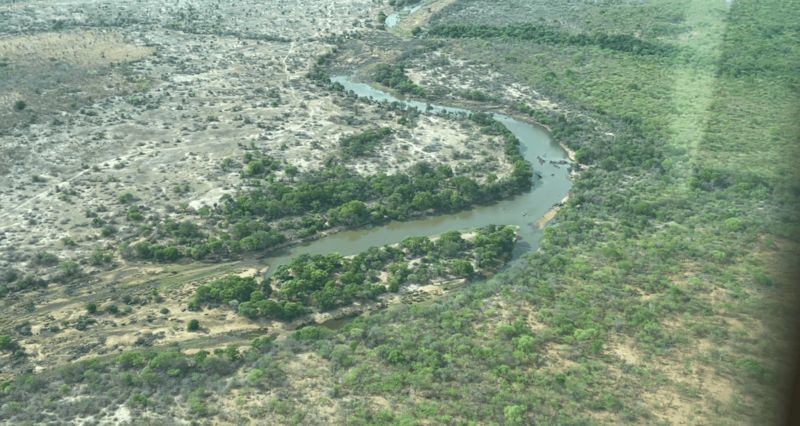
Journalists investigate
At the conference, the Chairman of the Tanzania Editors’ Forum (TEF), Deodatus Balile, has advised the government to take action to remove the Usangu Ranch which is located in the wetland that feeds the Ruaha Mkumu River along with building an embankment in the Ngiliamu area to save the river from drought.
“We are doing investigative news and we have found out that Usangu Ranch is owned by 12 families, there are judges, there are MPs, there are ministers and I will hand over the names to you so that appropriate measures are taken in the interest of the nation,” said Balile who is also a senior reporter for Investigative News.
Activists want action to be taken
Environmentalists also point out that urgent measures are needed to save water sources and the environment.
Habib Mchange, who is an environmental activist, told the BBC that urgent measures are needed and that they will not remain silent when they see the environment being damaged.
Mchange has said, it is more than 130 days that the Ruaha River does not flow.
“Today the Ruaha Mkumu River has more than 130 days without flowing water, and if you go to the reserve you will be sad to see hippos fighting for sand and not water due to the destruction of the environment, ” explains Mchange.
Mchange says through the National Environment Report, 16 percent of Tanzania’s land is desert while 63 percent has been destroyed.
He explains that it is not only the Ruaha river that is facing these challenges, but even the Malagarasi, Ruvu, Ruvuma and many others are going through the same situation and that if urgent measures are not taken, the situation will get worse.
What has caused the river Ruaha to dry up?
The Main Ruaha River has dried up from its sources meaning the Ihefu and Usangu Valleys have been destroyed.
Conservationists explain that human activities such as agriculture and animal husbandry are the cause for the land in the same valley to deteriorate.
They say the massive diversion of water has led to the drying up of the Main Ruaha River, which is relied on in the Ruaha National Park and is needed to generate electricity at dams including Mtera, Kidatu and Mwalimu Nyerere (the largest electricity project in Tanzania).
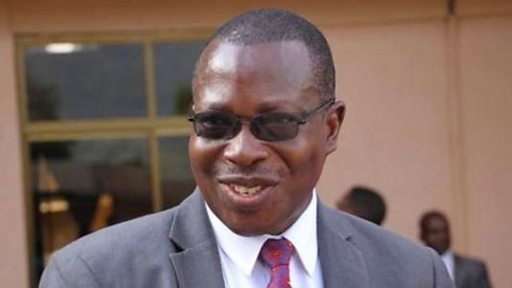
How extensive is the damage?
The Assistant Conservation Commissioner and Head of the Ruaha National Park, Godwell Ole Meing’ataki says the Ruaha River used to flow all year round in the past, but from the 90s it started to show signs of drying up.
“The survival of the nation depends on the existence of the Ruaha River. Ihefu is the source of the Great Ruaha River, from the 90s until now the size of the Ihefu area is shrinking and unable to collect water for the Great Ruaha River, and the way it shrinks the Great Ruaha River is being affected,” the Commissioner told the BBC and added; “In 1985, there were 14,000 hectares of irrigated agriculture in the Ihefu valley, in 1998, irrigated agriculture reached 24,000 hectares, in 2013, they reached 115,000 hectares, water is mostly directed to farms. As we speak, Ruaha has dried up for more than 130 days, the river does not give water even though there has been a little rain.”
What steps are being taken by the Tanzanian government?
The Vice President, Dr. Philip Mpango said that when he ventured into the war, he knew it was not an easy war, but he was determined to win the war.
He said, “The names of the 12 families mentioned will be handed over to me and since this country is governed by justice and the law, we will go to work on them to give justice.”
He also instructed the country’s watershed officials to start taking action against all those who invaded conservation areas including those who built walls on the banks of the Ruaha Mkumu River. At the same time, he ordered that all the permits for those doing activities in the valley be delivered.
In addition to all this, he also ordered an evaluation of the land use that he ordered to deal with the effects of environmental damage in the country.
In addition, he ordered the speedy completion of the work of demarcating Ruaha.
What is the importance of Ruaha River for Tanzania?
The river with a length of 475 kilometers starts from Mount Kipengere in Makete district in Njombe region, pouring water in Usangu wetland in Mbarali district in Mbeya region through Runapa to Rufiji River.
This river accounts for 22 percent of the water in the Rufiji Valley, with more than 39 species of fish and other aquatic creatures including crocodiles and hippos.
This person is important because he is the one who gives life to the ecology of the Ruaha reserve as well as being the source of electricity production at the Mtera, Kidatu and Mwalimu Nyerere dams.
With that logic, the drying up of the river will affect the national income from tourism due to the Ruaha reserve not having a solid conservation.
It will also affect the economic growth of individuals and the nation due to the lack of reliable electricity as many economic activities depend on the energy that comes from water.
Share this news
This Year’s Most Read News Stories

Tanzania Confirms Outbreak of Marburg Virus Disease
Dodoma — Tanzania today confirmed an outbreak of Marburg virus disease in the northwestern Kagera region after one case tested positive for the virus following investigations and laboratory analysis of suspected cases of the disease.
President of the Republic of Tanzania, Her Excellency Samia Suluhu Hassan, made the announcement during a press briefing alongside World Health Organization (WHO) Director-General, Dr Tedros Adhanom Ghebreyesus, in the country’s administrative capital Dodoma.
“Laboratory tests conducted in Kabaile Mobile Laboratory in Kagera and later confirmed in Dar es Salaam identified one patient as being infected with the Marburg virus. Fortunately, the remaining suspected patients tested negative,” the president said. “We have demonstrated in the past our ability to contain a similar outbreak and are determined to do the same this time around.”
A total of 25 suspected cases have been reported as of 20 January 2025, all of whom have tested negative and are currently under close follow-up, the president said. The cases have been reported in Biharamulo and Muleba districts in Kagera.
“We have resolved to reassure the general public in Tanzania and the international community as a whole of our collective determination to address the global health challenges, including the Marburg virus disease,” said H.E President Hassan.
WHO is supporting Tanzanian health authorities to enhance key outbreak control measures including disease surveillance, testing, treatment, infection prevention and control, case management, as well as increasing public awareness among communities to prevent further spread of the virus.
“WHO, working with its partners, is committed to supporting the government of Tanzania to bring the outbreak under control as soon as possible, and to build a healthier, safer, fairer future for all the people of Tanzania,” said Dr Tedros. “Now is a time for collaboration, and commitment, to protecting the health of all people in Tanzania, and the region, from the risks posed by this disease.”
Marburg virus disease is highly virulent and causes haemorrhagic fever. It belongs to the same family as the virus that causes Ebola virus disease. Illness caused by Marburg virus begins abruptly. Patients present with high fever, severe headache and severe malaise. They may develop severe haemorrhagic symptoms within seven days.
“The declaration by the president and the measures being taken by the government are crucial in addressing the threat of this disease at the local and national levels as well as preventing potential cross-border spread,” said Dr Matshidiso Moeti, WHO Regional Director for Africa. “Our priority is to support the government to rapidly scale up measures to effectively respond to this outbreak and safeguard the health of the population,”
Tanzania previously reported an outbreak of Marburg in March 2023 – the country’s first – in Kagera region, in which a total of nine cases (eight confirmed and one probable) and six deaths were reported, with a case fatality ratio of 67%.

Sign up for free AllAfrica Newsletters
Get the latest in African news delivered straight to your inbox
In the African region, previous outbreaks and sporadic cases have been reported in Angola, the Democratic Republic of the Congo, Ghana, Kenya, Equatorial Guinea, Rwanda, South Africa and Uganda.
Marburg virus is transmitted to people from fruit bats and spreads among humans through direct contact with the bodily fluids of infected people, surfaces and materials. Although several promising candidate medical countermeasures are currently undergoing clinical trials, there is no licensed treatment or vaccine for effective management or prevention of Marburg virus disease. However, early access to treatment and supportive care – rehydration with oral or intravenous fluids – and treatment of specific symptoms, improve survival.
Source: allafrica.com

Britam half-year net profit hits Sh2bn on higher investment income
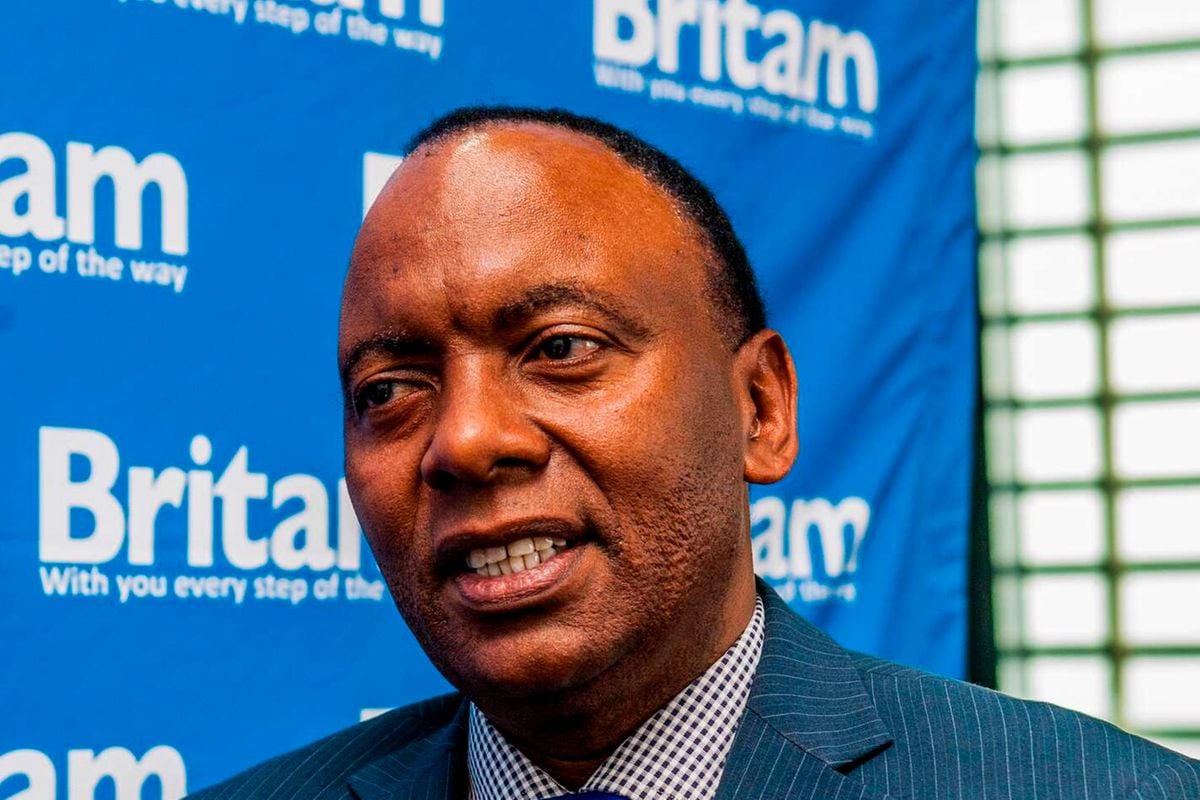
Insurer and financial services provider Britam posted a 22.5 percent jump in net earnings for the half-year ended June 2024, to Sh2 billion, buoyed by increased investment income.
The rise in half-year net profit from Sh1.64 billion posted in a similar period last year came on the back of net investment income rising 2.5 times to Sh13.27 billion from Sh5.3 billion.
“We are confident in the growth and performance trend that Britam has achieved, supported by its subsidiaries in Kenya and the region. Our business is expanding its revenue base while effectively managing costs,” Britam Chief Executive Officer Tom Gitogo said.
“Our customer-centric approach is fueling growth in our customer base and product uptake, particularly through micro-insurance, partnerships, and digital channels.”
The investment income growth was fueled by interest and dividend income rising 34 percent to Sh9.1 billion, which the insurer attributed to growth in revenue and the gains from the realignment of the group’s investment portfolio.
Britam also booked a Sh3.79 billion gain on financial assets at a fair value, compared with a Sh1.8 billion loss posted in a similar period last year.
The increased investment income helped offset the 12.7 percent decline in net insurance service result to Sh2.13 billion in the wake of claims paid out rising at a faster pace than that of premiums received.
Britam said insurance revenue, which is money from written premiums, increased to Sh17.8 billion from Sh16.6 billion, primarily driven by growth in the Kenya insurance business and regional general insurance businesses, which contributed 30 percent of the revenue.
The group has a presence in seven countries in Africa namely Kenya, Uganda, Tanzania, Rwanda, South Sudan, Mozambique, and Malawi.
Britam’s insurance service expense hit Sh13.6 billion from Sh11.3 billion, while net insurance finance expenses rose 2.6 times to Sh12.3 billion during the same period.
“Net insurance finance expenses increased mainly due to growth in interest cost for the deposit administration business driven by better investment performance. This has also been impacted by a decline in the yield curve, which has led to an increase in the insurance contract liabilities. The increase has been offset by a matching increase in fair value gain on assets,” said Britam.
Britam’s growth in profit is in line with that of other Nairobi Securities Exchange-listed insurers, which have seen a rise in profits.
Jubilee Holdings net profit in the six months increased by 22.7 percent to Sh2.5 billion on increased income from insurance, helping the insurer maintain Sh2 per share interim dividend.
CIC Insurance Group posted a 0.64 percent rise in net profit to Sh709.99 million in the same period as net earnings of Liberty Kenya nearly tripled to Sh632 million from Sh213 million, while Sanlam Kenya emerged from a loss to post a Sh282.2 million net profit.

Kampuni ya Elon Musk kuzindua mtandao Tanzania
Huduma ya mtandao ya Elon Musk ya Starlink inatarajiwa kupatikana nchini Tanzania katika robo ya kwanza ya 2023, huku wachambuzi wakisema maendeleo hayo mapya yatakuza uchumi wa kidijitali.Continue Reading

